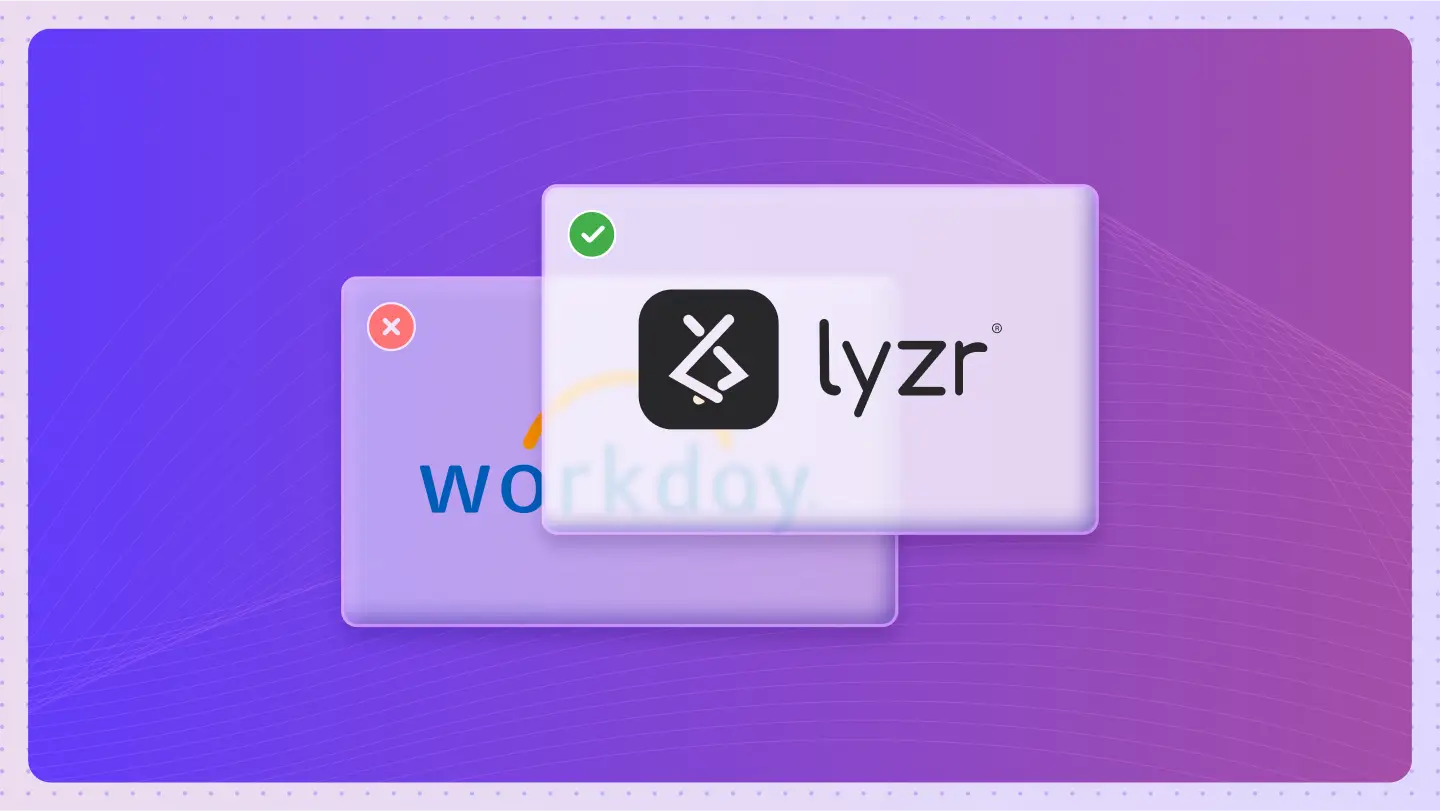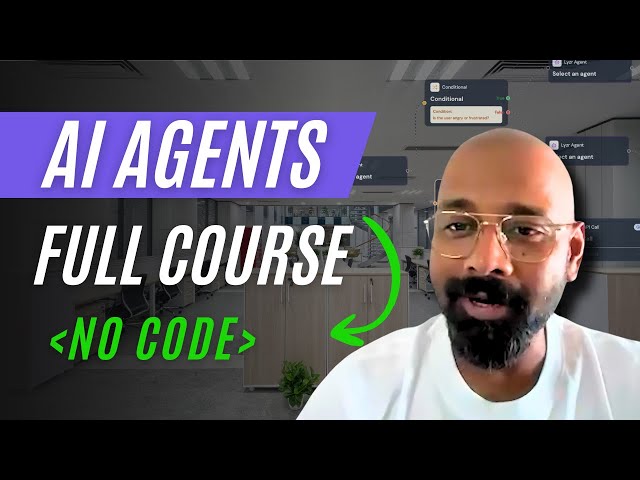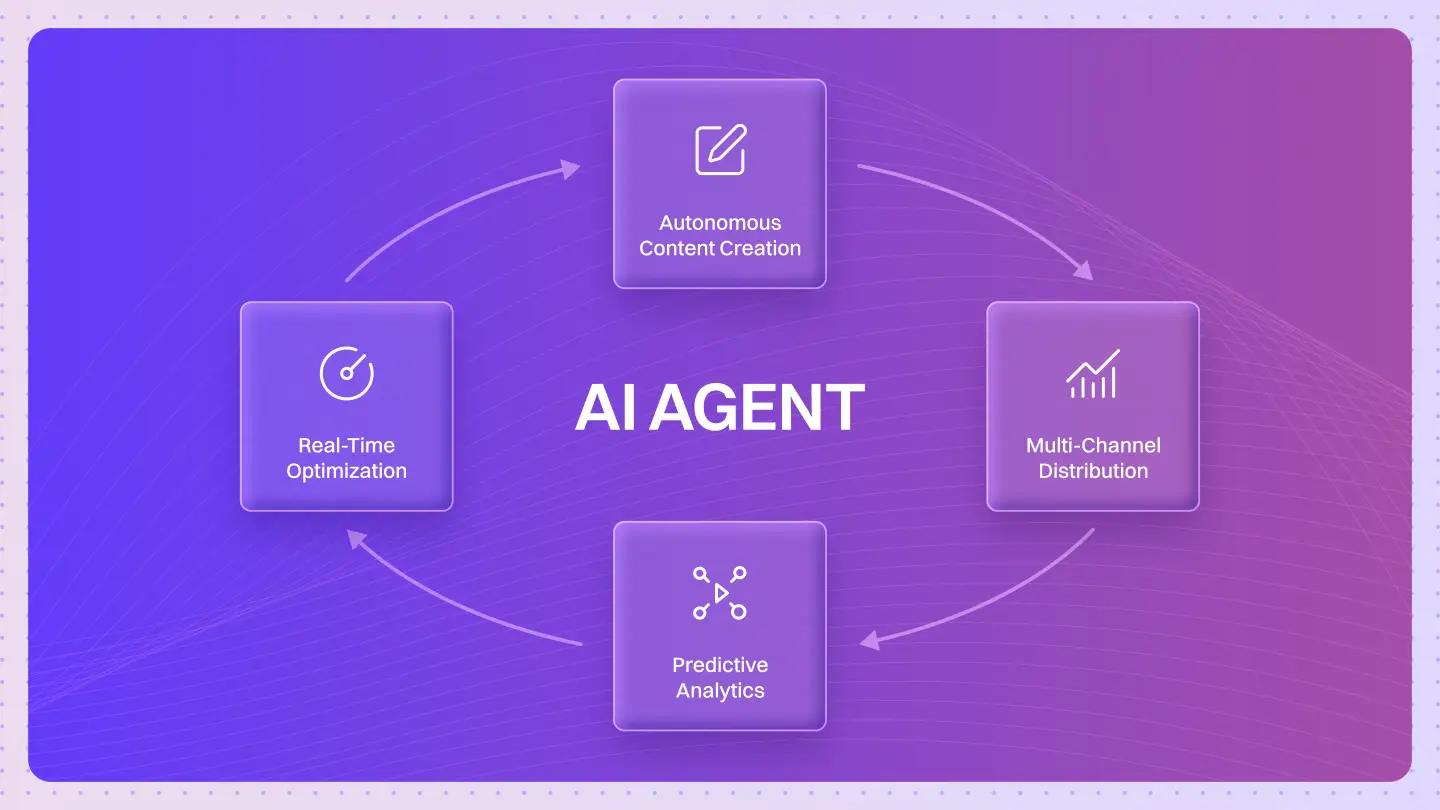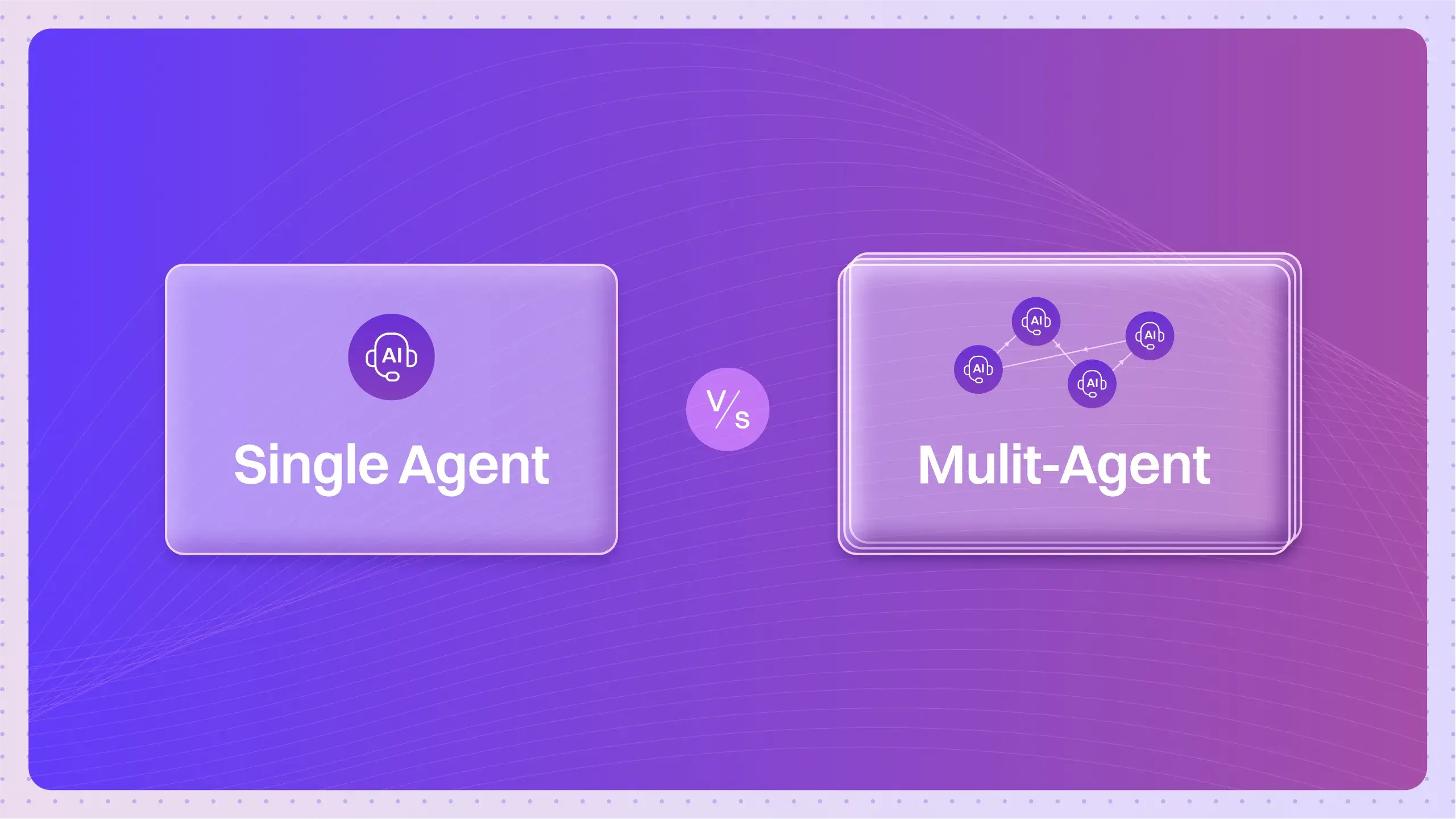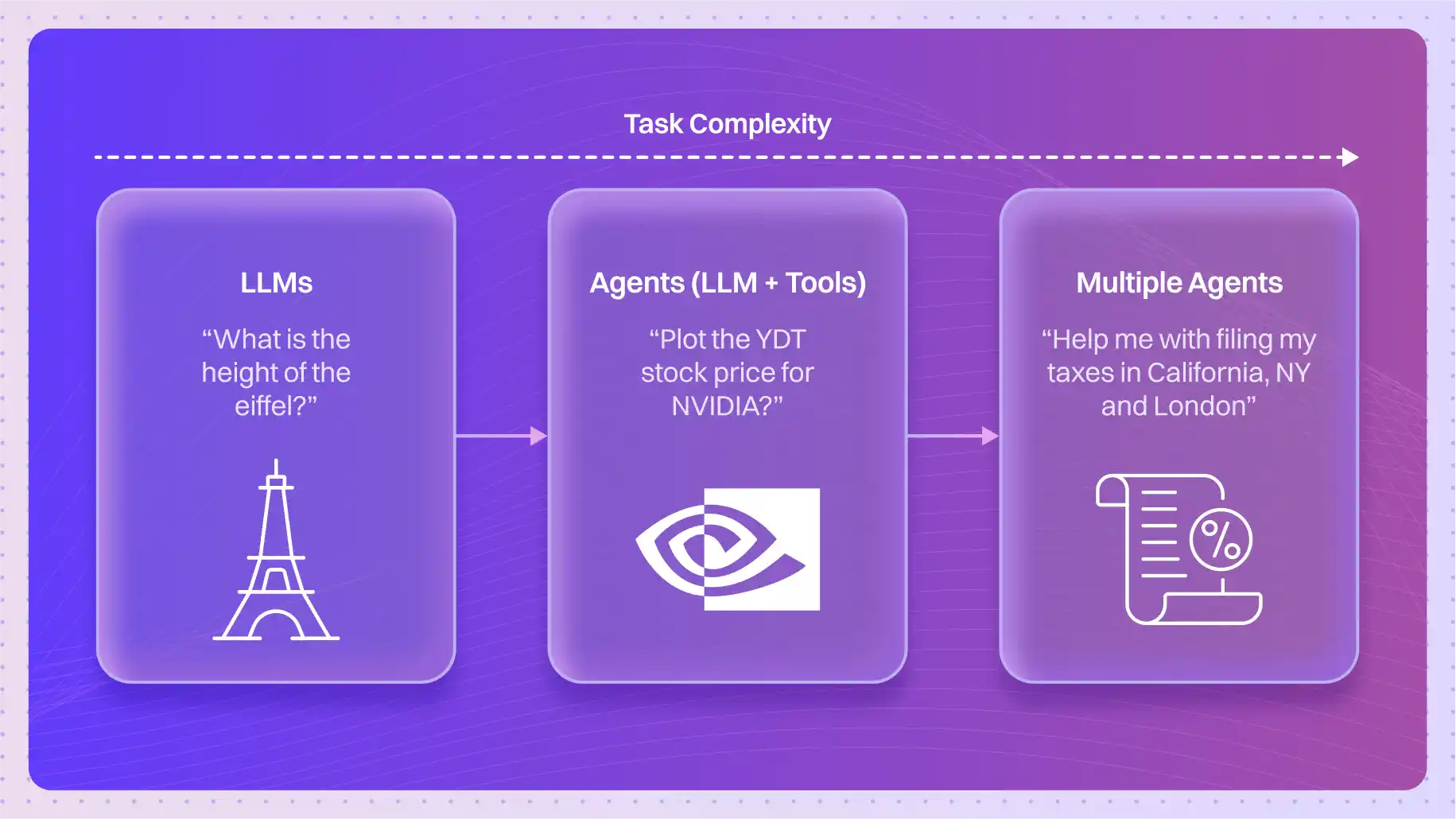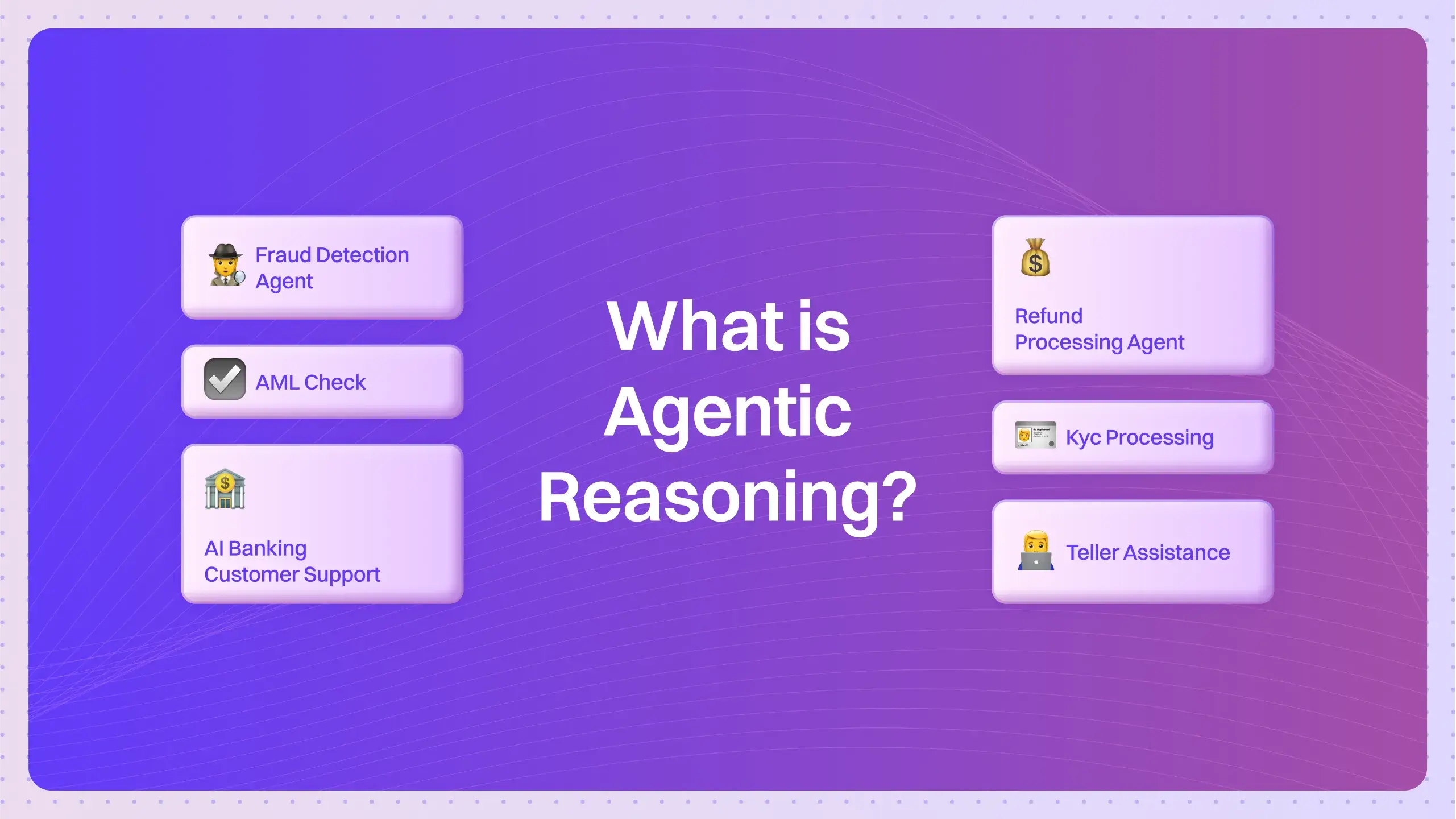Table of Contents
ToggleLet’s get real for a moment. How much of your marketing operation is held together by last-minute heroics and sheer willpower? Your team is sharp and your ideas are solid, but you’re constantly battling the crippling cost of almost.
Campaigns that almost launch on time, reports that are almost accurate because the data is siloed across five different platforms, and a growth strategy that almost gets the attention it deserves before another fire drill erupts.
This isn’t just a feeling; it’s a systemic breakdown in how marketing has been forced to operate. The pressure to perform is relentless, but the manual processes most teams rely on are leaking time, money, and morale.
It’s why 58% of marketers now feel perpetually overwhelmed and more than half admit to being emotionally exhausted. This isn’t just about stress; it’s about tangible consequences such as costly manual errors, missed market opportunities, and the quiet resignation of your best talent. When teams spend more time navigating approvals than actually creating, you’re not just inefficient; you’re vulnerable
The Hidden Cost of Manual Campaign Management
Marketing teams operating under traditional manual processes face a perfect storm of inefficiencies that drain both resources and morale. The numbers reveal the true scope of this challenge: marketers are productive for only 2 hours and 53 minutes in an average 8-hour workday, with the remainder lost to administrative tasks, context switching, and process bottlenecks.
Manual campaign management creates cascading inefficiencies throughout marketing organisations. Campaign creation alone requires 2-4 weeks per initiative, with content generation consuming 3-5 additional days. This protracted timeline means teams spend more time in planning meetings than executing strategic work. Research shows that marketing executives attend 17 meetings weekly compared to 8 for typical employees, leaving minimal time for creative thinking that drives results.
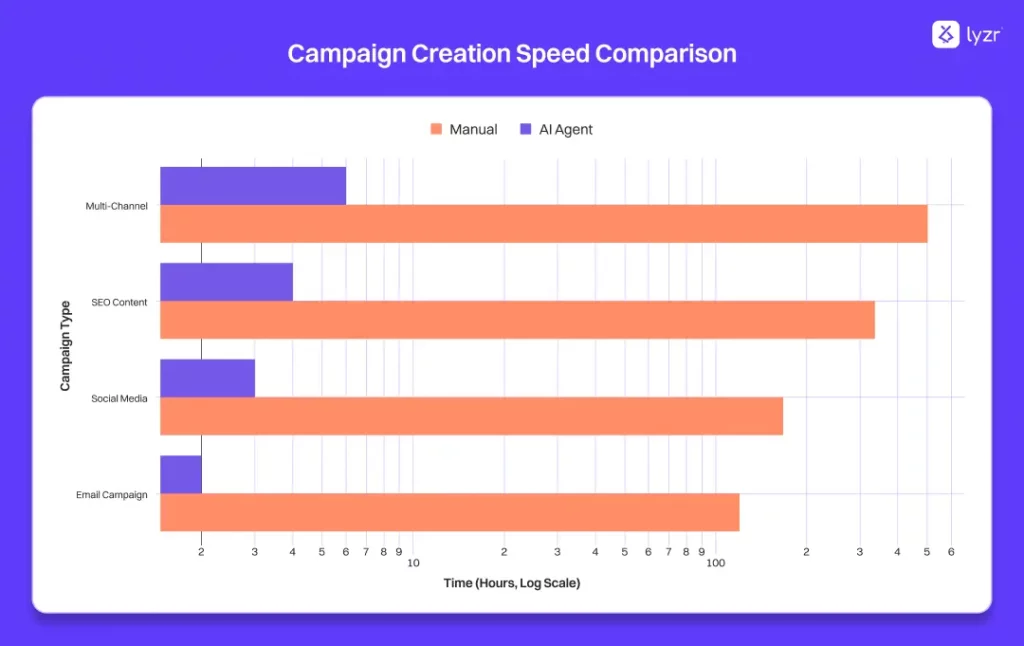
The economic burden of manual campaign management significantly impacts organisational budgets. Traditional marketing operations require 5-8 marketing specialists per campaign cycle, with annual costs ranging from $50,000 to $150,000 for personnel alone. Add technology costs, training expenses, and opportunity costs from delayed campaigns, and the true expense becomes staggering.
More critically, manual processes delay ROI realisation. While automated systems deliver returns within 1-3 months, manual campaigns typically require 6-12 months to demonstrate meaningful impact. This extended timeline places additional pressure on marketing budgets and executive patience, creating a cycle where teams must constantly justify their investments.
But here’s what really hurts: Manual processes introduce human error at multiple touchpoints, resulting in 15-25% error rates across campaign elements. Each mistake not only impacts campaign performance but requires additional resources to identify and correct.
The Rise of AI Agents in Campaign Automation
The marketing landscape is witnessing a fundamental shift as AI agents evolve from simple automation tools to sophisticated decision-making systems. Unlike traditional marketing automation that follows predetermined rules, AI agents for campaign automation demonstrate autonomous reasoning, learning, and adaptation capabilities that mirror human strategic thinking at machine scale.
Think of AI agents as hiring a team of tireless marketing experts who never sleep, constantly learn, and work together seamlessly to optimize every aspect of your campaigns. These systems combine natural language processing, machine learning algorithms, and predictive analytics to perceive market conditions, reason through complex scenarios, and execute strategic decisions autonomously.
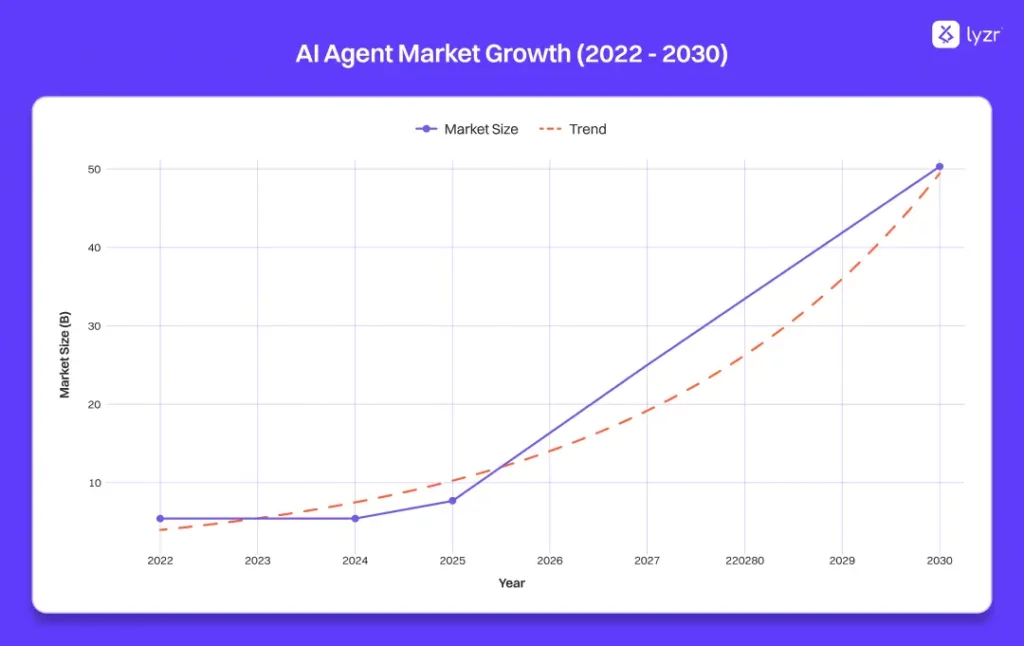
The global AI agent market reflects this transformation, projected to grow from $5.43 billion in 2024 to $50.31 billion by 2030, a staggering 45.8% compound annual growth rate. This explosive growth indicates that forward-thinking organisations recognise AI agents as essential infrastructure rather than optional enhancements.
Modern AI campaign automation employsmulti-agent systems where specialised agents collaborate to handle different campaign aspects. One agent focuses on SEO research and content creation, another manages audience segmentation and targeting, while a third optimises performance and distribution. This specialisation allows each agent to develop deep expertise in their domain while maintaining seamless coordination. In addition, partnering with a guest posting company can enhance off-page authority by securing high-quality content placements that support the overall automation strategy and drive sustainable search growth.
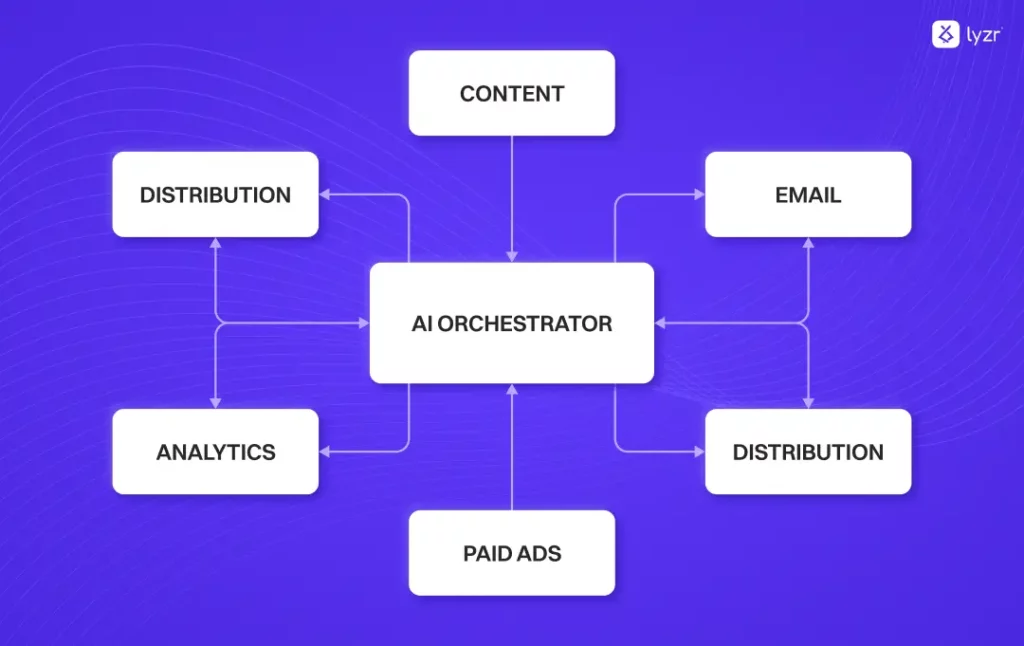
What distinguishes AI agents from traditional automation is their capacity for continuous improvement. These systems learn from every campaign interaction, customer response, and market signal, becoming more sophisticated over time.
Machine learning algorithms analyze performance patterns, identify successful strategies, and automatically apply insights to future campaigns.
Meet Skott: The AI Marketing Super Agent by Lyzr AI
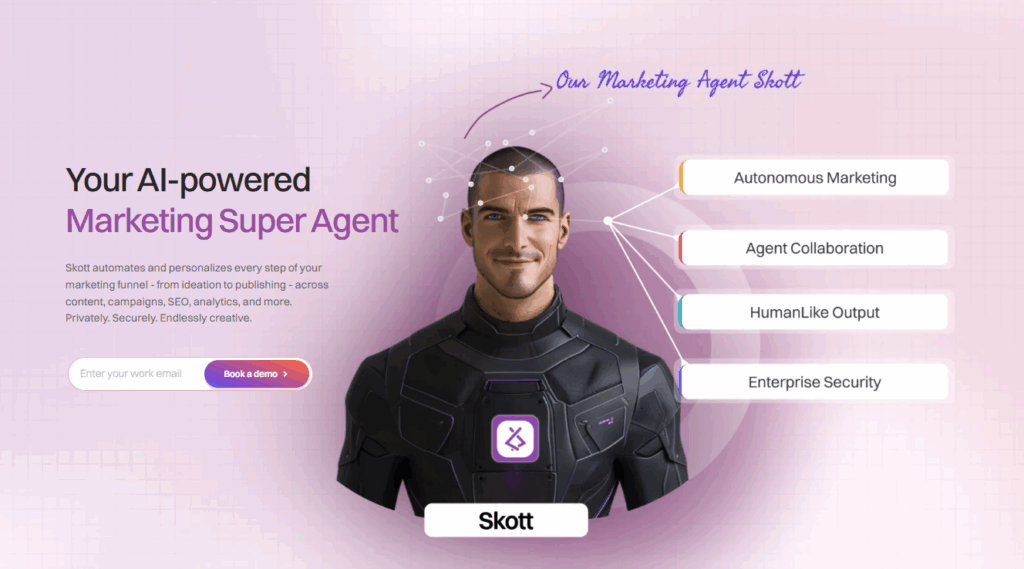
Skott represents the evolution of marketing automation from simple task execution to strategic campaign orchestration. Developed by Lyzr AI, this multi-agent system addresses the complete marketing funnel, from initial ideation through performance analysis and optimisation.
Built for CMOs, content leaders, growth teams, and marketing agencies, Skott provides comprehensive solutions for modern campaign challenges. The platform operates on Lyzr’s enterprise-grade infrastructure, offering SOC2, ISO27001, and GDPR compliance alongside options for private cloud or secure managed hosting. This enterprise focus ensures organisations can deploy AI agents without compromising data security or regulatory compliance requirements.
Skott’s power lies in its coordinated multi-agent approach, where different AI agents specialise in specific marketing functions while working together seamlessly. The system includes:
- Content Creation Agents that generate blog posts, social media content, email campaigns, and marketing copy while maintaining brand voice consistency. These agents leverage retrieval-augmented generation (RAG) to access brand-specific information and create contextually relevant content at scale.
- SEO and Analytics Agents that conduct real-time SERP analysis, identify content opportunities, and optimise campaigns for search visibility. These agents continuously monitor keyword performance and adjust strategies based on ranking changes and competitive movements. This constant stream of data allows teams to make more informed decisions and prioritize actions that have the greatest impact on rankings. In this process, ai seo enhances speed and accuracy by automating analysis and enabling smarter, real-time optimisation at scale. As part of this continuous optimization process, the ability to track competitor rankings helps these agents benchmark performance, spot emerging threats or gaps, and refine strategies to maintain a strong and visible search presence.
- Email and Newsletter Agents that create hyper-personalised email campaigns, segment audiences dynamically, and optimise send times for maximum engagement. To support this approach, a well-structured Free Email List helps ensure that personalised messages reach an audience that has already shown genuine interest. The system can manage complex nurture sequences while adapting messaging based on recipient behaviour.
- Creative Testing Agents that generate multiple creative variations, conduct A/B tests at scale, and identify winning combinations faster than traditional testing methods. This capability allows teams to try 10 ideas in the time previously required for one.
Performance metrics from early adopters demonstrate Skott’s impact: AirAsiaMove reports significant time savings that allow teams to focus on strategic initiatives, while other clients achieve 10x improvements in specific metrics and 70% reductions in manual work. The platform’s ability to operate autonomously while maintaining human oversight addresses the common concern about AI replacing human creativity.
How Super AI Agents Like Skott Can Transform Campaign Operations
The operational transformation that AI agents bring extends far beyond simple automation. These systems fundamentally restructure how marketing teams conceptualise, execute, and optimise their efforts, creating new possibilities for scale, speed, and strategic impact.
Traditional campaign development follows a linear, time-intensive process: strategy development, content creation, asset production, approval cycles, and launch coordination. This workflow typically requires 2-4 weeks for simple campaigns and months for complex initiatives. AI agents compress this timeline dramatically by parallelising tasks and eliminating bottlenecks.
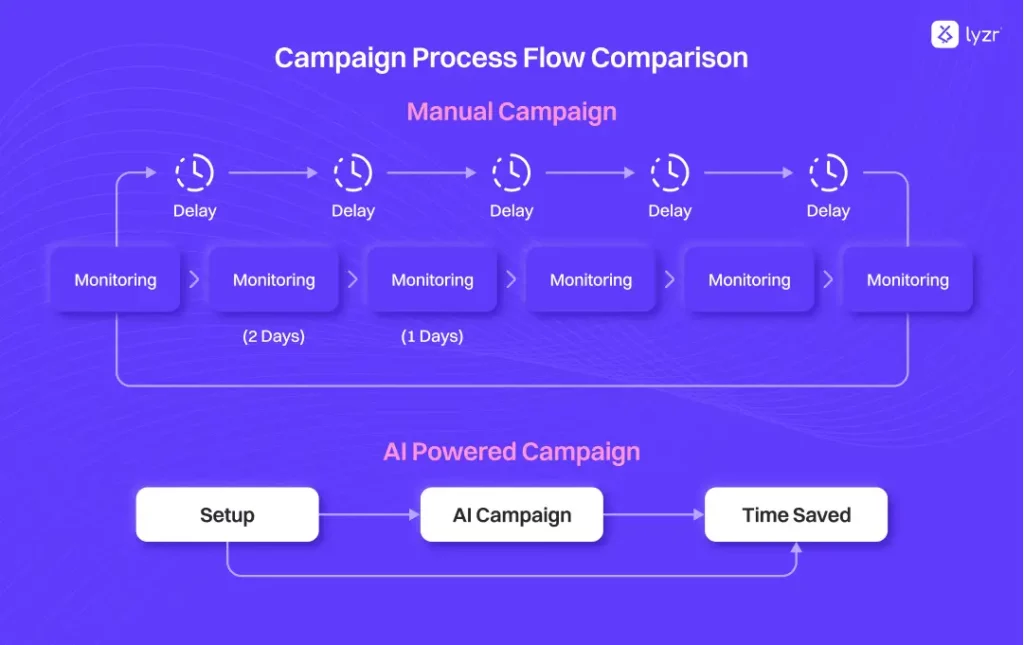
Skott can conceptualise, create, and launch campaigns within 2-4 hours, a 90% time reduction compared to manual processes. This acceleration stems from the system’s ability to simultaneously analyse market conditions, generate content variations, optimise targeting parameters, and prepare distribution assets. Rather than waiting for sequential task completion, all campaign elements develop concurrently under AI coordination.
The speed advantage extends beyond initial creation to campaign iteration and optimisation. While manual processes require scheduled review cycles and committee decisions, AI agents continuously monitor performance and make real-time adjustments. This responsiveness allows campaigns to adapt to market changes within minutes rather than weeks.
Content creation represents one of the most resource-intensive aspects of traditional campaign management. Human copywriters, designers, and strategists spend days crafting individual pieces, leading to content bottlenecks that constrain campaign velocity. AI agents eliminate these constraints through rapid, intelligent content generation that maintains quality while achieving unprecedented scale.
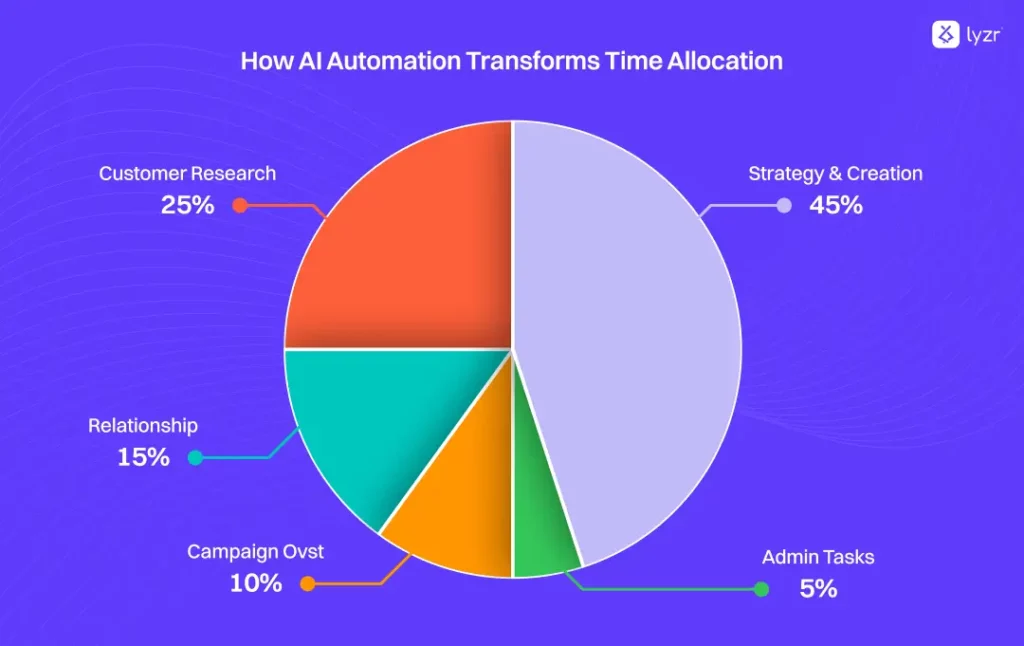
Perhaps the most transformative aspect of AI agents is their autonomous optimisation capability. Traditional campaigns rely on periodic human analysis and adjustment, creating lag times between performance changes and strategic responses. AI agents monitor campaign performance continuously, identifying optimisation opportunities and implementing improvements in real-time.
This continuous optimization operates across multiple dimensions simultaneously. Agents adjust bidding strategies, refine targeting parameters, modify creative elements, optimize send times, and reallocate budgets all based on real-time performance data and predictive analytics.
Content creation efficiency shows particularly impressive gains. Automated systems enable 70% faster campaign creation while maintaining quality standards. This acceleration allows marketing teams to respond to market opportunities, competitive threats, and seasonal trends with unprecedented agility.
What Changes for Your Marketing Team??
The implementation of AI agents for campaign automation fundamentally reshapes marketing team structure, responsibilities, and strategic focus. Rather than replacing human marketers, these systems elevate their roles from operational executors to strategic orchestrators, creating new opportunities for career development and organisational impact.
Traditional marketing roles centre heavily on tactical execution: creating individual pieces of content, managing spreadsheets, coordinating approval workflows, and manually optimising campaigns.
These activities, while necessary, often consume the majority of marketers’ time and energy, leaving limited capacity for strategic thinking and creative problem-solving.
AI agents assume these operational responsibilities, freeing human marketers to focus on higher-value activities. Strategy development, competitive analysis, customer insight generation, and creative direction become the primary focus areas.
This shift allows marketing professionals to leverage their uniquely human capabilities empathy, creativity, strategic thinking, and relationship building.
The result is a more fulfilling and impactful career path for marketing professionals. Instead of spending hours updating spreadsheets or manually segmenting lists, marketers can focus on understanding customer needs, developing innovative campaigns, and building meaningful brand connections. This elevation of human roles often leads to increased job satisfaction and reduced burnout.
AI agents facilitate better collaboration across marketing teams and with other departments. By providing real-time, comprehensive campaign performance data, these systems enable more informed decision-making and strategic alignment. Marketing teams can present concrete, data-driven insights to sales, product, and executive teams, elevating marketing’s strategic influence within the organisation.
Wrapping Up
The marketing world stands at a crossroads. The old way characterised by manual processes, endless spreadsheets, and campaign creation cycles that stretch for weeks has led us to a burnout crisis that’s claiming careers and crushing creativity.
But the new way is here. AI agents for campaign automation aren’t just tools; they’re strategic partners that transform how marketing gets done. They don’t replace marketers, they upgrade them. While AI handles the operational heavy lifting, human marketers can finally focus on what they do best: strategy, creativity, and building meaningful connections with customers.
The companies embracing this transformation today aren’t just seeing better ROI and faster campaigns. They’re creating marketing organisations that are more strategic, more creative, and more human. They’re proving that autonomous marketing doesn’t mean removing people from the equation, it means empowering people to do their most impactful work.
Ready to put your campaigns on autopilot while putting your creativity in overdrive? Discover what Skott can do for your team today.
Frequently Asked Questions
1. How difficult is it to implement AI agents like Skott in existing marketing operations?
Skott is designed for rapid deployment with minimal technical expertise required. The platform offers a 100% no-code interface that allows marketing teams to set up and configure agents without engineering support. Most organisations can have basic campaigns running within a day, with full implementation typically completed within a week. The system integrates natively with existing marketing tools like HubSpot, WordPress, and Google Analytics, eliminating complex technical migrations.
2. Will AI-generated content sound robotic or damage our brand voice?
Modern AI agents like Skott use advanced learning systems that adapt to your specific brand voice and style guidelines. The platform employs retrieval-augmented generation (RAG) technology to understand your brand’s unique tone, messaging preferences, and audience expectations. Additionally, human-in-the-loop features allow marketers to review and refine AI-generated content, ensuring it meets quality standards. Many users report that AI-generated content becomes more aligned with their brand voice over time as the system learns from feedback.
3. How secure is our marketing data when using AI agents?
Enterprise AI platforms prioritise data security and compliance. Skott meets SOC2, ISO27001, and GDPR requirements while offering deployment options that include private cloud hosting or secure managed environments. This means your data remains under your control and doesn’t get used to train other companies’ models. The platform ensures 100% data privacy with enterprise-grade security measures that often exceed what most organisations can implement internally.
4. What happens to our existing marketing team when we implement AI agents?
AI agents complement rather than replace human marketers. Implementation typically results in role elevation rather than job elimination. Team members transition from operational tasks to strategic activities like campaign planning, creative direction, and customer insight development. Many organisations find they can handle more campaigns with the same headcount while improving job satisfaction as team members focus on higher-value, more engaging work.
5. How quickly can we expect to see ROI from AI agent implementation?
Most organisations see positive ROI within 1-3 months of implementing AI agents, compared to 6-12 months for traditional marketing automation. The combination of reduced operational costs, faster campaign creation, and improved performance metrics typically delivers 544% average ROI over the first year. Time savings alone often justify the investment, with teams reporting 70% reductions in manual work within the first month.
6. Can AI agents handle complex, multi-channel campaigns?
Yes, AI agents excel at managing complex, multi-channel campaigns that would overwhelm manual processes. Systems like Skott can coordinate content creation, audience targeting, and performance optimization across email, social media, SEO, and paid advertising simultaneously. The multi-agent architecture allows for specialisation while maintaining strategic coordination, enabling campaigns that are both sophisticated and efficient.
7. What level of control do we maintain over AI-generated campaigns?
AI agents operate with configurable guardrails and human oversight capabilities. Marketing teams can set brand guidelines, content parameters, budget limits, and approval workflows that AI agents must follow. The systems provide transparency into their decision-making processes and allow for manual intervention at any point. Most platforms offer real-time monitoring dashboards and alert systems that keep human marketers informed and in control.
Book A Demo: Click Here
Join our Slack: Click Here
Link to our GitHub: Click Here

